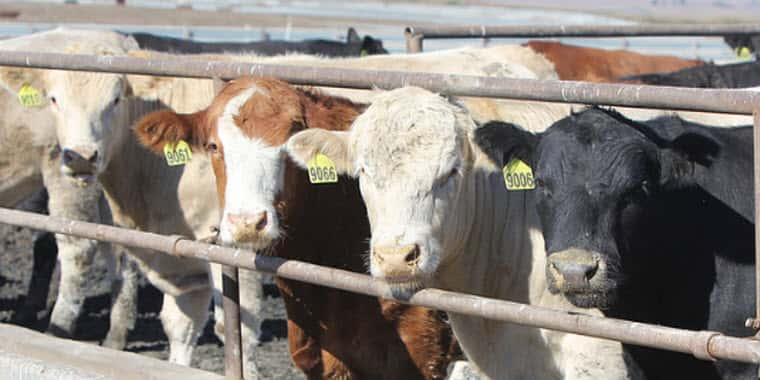The U.S. Department of Agriculture’s Animal and Plant Health Inspection Service (APHIS) is seeking public comment on a proposal where APHIS would only approve Radio Frequency Identification (RFID) as the official eartag for use in interstate movement of cattle that are required to be identified by the traceability regulations.
An “official eartag” is defined as an identification tag approved by APHIS that bears an official identification number for individual animals. Regulations allow APHIS to approve tags that can be used as official identification, and both metal and RFID tags are current options.
USDA says that a transition to RFID tags would support ongoing efforts to increase animal disease traceability by more accurately and rapidly allowing animal health officials to know where affected and at-risk animals are located. While this would not prevent disease outbreaks, the agency says it would allow animal health officials to more quickly contain outbreaks early before they can do substantial damage to the U.S. cattle industry.
APHIS is also seeking comment on a proposed timeline for implementation, which the agency would use if this transition occurs. The timeline would make RFID tags the only option for use in cattle and bison requiring official identification on January 1, 2023. APHIS would “grandfather in” animals that have metal tags already in place on that date – their metal tags would serve as official identification for the remainder of their lifespan.
This transition timeline would not alter the existing regulations. The cattle and bison that must be identified will not change, nor will the option for animal health officials in shipping and receiving states to agree to accept alternate forms of identification, including brands and tattoos, in lieu of official identification.
R-CALF USA responded to the announcement saying that, “USDA’s actions contradict current law that expressly allows cattle producers to choose among various identification devices, including metal eartags, as well as backtags, brands, tattoos, and group lot identification.”
R-CALF Animal Identification Committee Chair Kenny Fox said “This is yet another end-run around the 2013 regulation that allows producers to use a variety of identification and traceability techniques,” Fox said. He also pointed out that an agency policy such as this cannot trump existing regulations and the USDA appears to be on a fishing expedition to force the cattle industry to expend unnecessary resources to fight a proposal that the agency has no authority to implement.
In October 2019, R-CALF USA represented by Harriet Hageman of the New Civil Liberties Alliance, filed a lawsuit that successfully blocked the USDA’s first attempt to unlawfully mandate the exclusive use of RFID eartags.
“The agency is completely out of touch with the needs of America’s cattle producers who are experiencing perhaps the worst economic cost-price squeeze in history, which has been greatly exacerbated by the COVID-19 Pandemic,” Fox commented.
Public comments on the proposal will be accepted through October 5, 2020 at the following site: https://www.federalregister.gov/d/2020-14463.



A brand should be allowed as a form of identification as well. That is how Cattle in the western U.S is identified.
I would favor RFID tags only when MCOOL is reinstated! While disease traceability is important, food borne illnesses are more important! When imported beef is labeled the same as beef born, fed and processed in the USA, the American cattle producers are oftentimes penalized for imported beef being the cause of the food borne illness! If beef is labeled with COOL, the source is known!
No. Cost not worth the results. Ranchers need other burdens eased first.